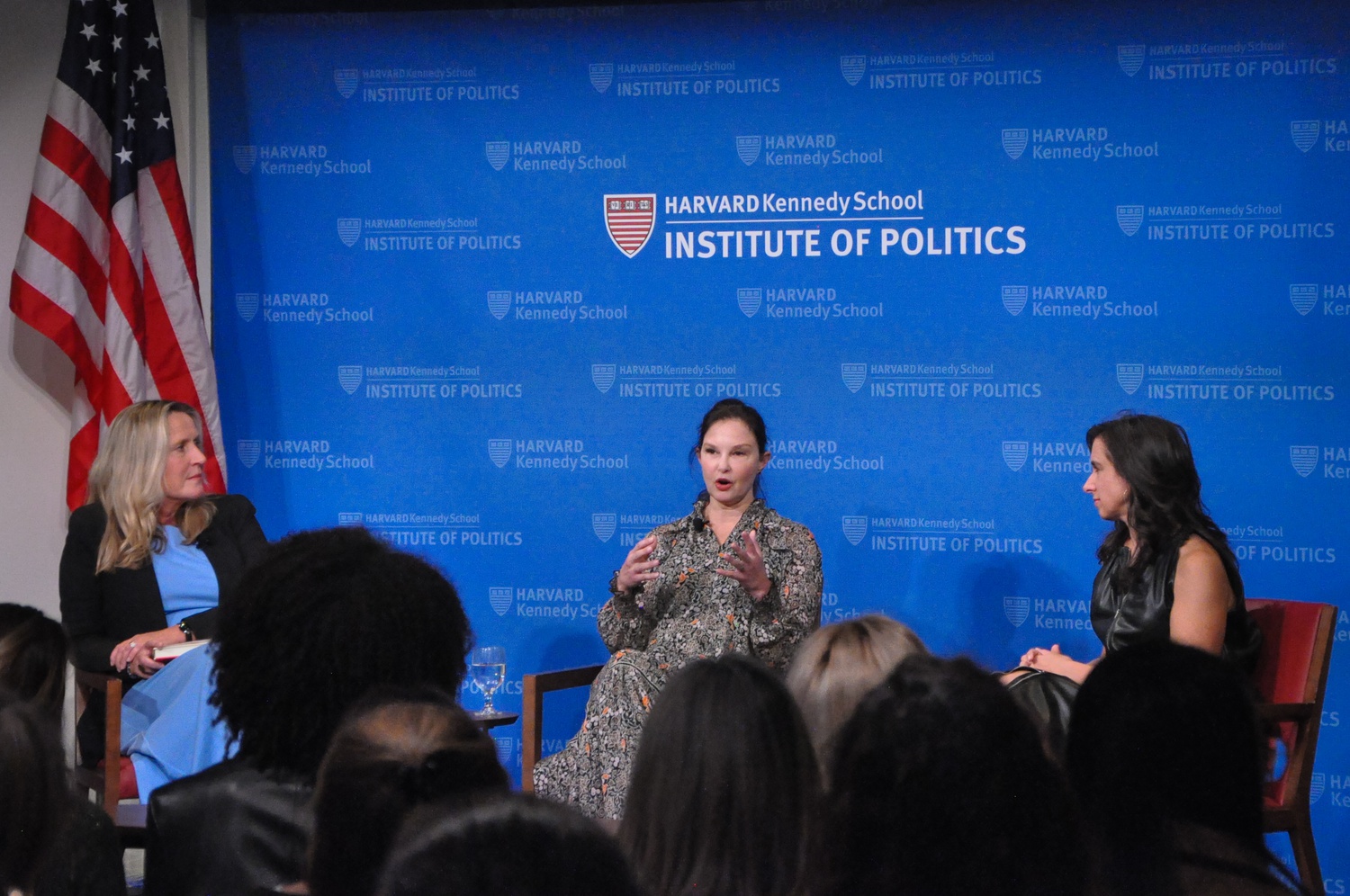
News
Interim Harvard President Alan Garber’s 100 Days of Trial By Fire

News
‘Mourning into a Movement’: Family Members of George Floyd, Eric Garner Discuss Grief and Activism at IOP Forum

News
Expert Witness Says Northrop’s Lack of Summer Contact Was ‘Typical’ for University Case Workers

News
Harvard Residential Advisers Allege University Administrators Engaged in Union-Busting Tactics

News
‘Loses the Magic’: Cabot Students Frustrated at Decrease in N+1 Housing
New York Times Reporter Jodi Kantor, Actress Ashley Judd Discuss the #MeToo Movement at Harvard IOP

New York Times journalist Jodi Kantor — one of the reporters who broke the story of sexual misconduct allegations against Harvey Weinstein — and actress Ashley Judd — one of the first women to publicly speak out against the Hollywood mogul — talked about the making of the ground-breaking article and the #MeToo movement at a Harvard Institute of Politics forum Thursday evening.
Iris Bohnet, co-director of the Harvard Kennedy School’s Women and Public Policy Program, moderated the event. Kantor, along with co-writer Megan Twohey, exposed Weinstein’s decades of sexual misconduct in an October 2017 investigative article, which earned the reporters a 2018 Pulitzer Prize for Public Service. Twohey was also scheduled to join the panel, but could not make it.
Kantor and Twohey’s investigation helped popularize the #MeToo movement, which was first launched by activist Tarana Burke in 2006 to empower women to share their experiences with sexual misconduct and call for accountability
Days after The New York Times published the piece exposing Weinstein, actress Alyssa Milano tweeted a viral message asking women who had also been sexually harassed or assaulted to comment “me too.” Judd said Milano’s message touched millions of people, including her own mother.
“That is what the movement has done,” Judd said. “It’s allowed us to have our autonomy and be in our narrative, and that’s where it starts.”
The panel opened with a screening of the trailer for the movie “She Said,” which is based on the 2019 book of the same name that details Kantor and Twohey’s reporting process. The film is slated for theatrical release on Nov. 18.
Kantor explained that it was difficult to find women who would agree to go on the record and attach their names to their stories of sexual harassment and abuse.
Several women the reporters met had signed non-disclosure agreements, which prevented them from speaking out for fear of legal consequences. Kantor added that the uncertainty surrounding the article’s repercussions deterred some women from coming forward.
“Even you, Ashley, had serious deliberations about whether this was a safe thing to do because none of us knew at the time whether it ultimately was,” Kantor said to Judd.
“[Megan’s] and my goal was to do the investigative work to give the women a platform to stand on,” she added.
Both Judd and Kantor recalled that they had imagined the article would at best spark a protest outside of Weinstein’s apartment or inspire a joke at the Oscars. Kantor said she is “still flabbergasted” at the impact the story has had on Hollywood and beyond.
“Journalism was sort of the form of last resort because every other system had failed: HR, the law, the Weinstein Company board of directors,” Kantor said. “So it was left to these two mom journalists.”
In a Q&A session after the panel, Judd described some of the recent changes she has noticed both globally and within Hollywood in response to the #MeToo movement.
“I’ve been sexually harassed on set more times than I can count, and I never knew where to go or who to tell,” she said. “Now on my union card — proud union member — there is a sexual harassment hotline to call.”
Want to keep up with breaking news? Subscribe to our email newsletter.
